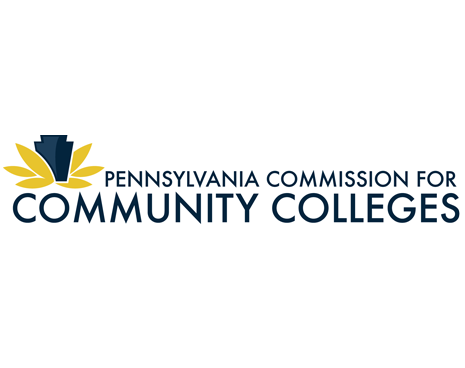Recent Grads are Filling Workforce Needs in High Priority Areas Across the State
 The Pennsylvania Commission for Community Colleges (PACCC) recently celebrated the graduation of 7,530 students from 15 community colleges across Pennsylvania. Community college graduates continue to fill workforce needs in their communities, with the vast majority receiving degrees in high-priority occupation areas, including the health sciences, early childhood education, teacher training, the trades, manufacturing, and information technology/computer science.
The Pennsylvania Commission for Community Colleges (PACCC) recently celebrated the graduation of 7,530 students from 15 community colleges across Pennsylvania. Community college graduates continue to fill workforce needs in their communities, with the vast majority receiving degrees in high-priority occupation areas, including the health sciences, early childhood education, teacher training, the trades, manufacturing, and information technology/computer science.
“We are extremely proud of our graduates and the work that they are undertaking in communities across the state,” said Tuesday Stanley, Chair of the PACCC board of directors and president of Westmoreland County Community College. “And kudos to our community colleges for their unwavering commitment to provide affordable access to life-changing education and training that supports the success of their students while providing clear career pathways for graduates to address meaningful workforce needs.”
Based on current census and population data, Pennsylvania’s projected skilled worker shortage could reach 820,000 in the coming years. To meet the state’s workforce needs and support continued economic growth, more workers will be required with appropriate credentials and training tailored to regional employer needs—an area in which community colleges excel.
“Our Commission’s members play an important role in creating a pipeline of well-trained individuals to address the Commonwealth’s evolving and growing workforce needs, a fact which is on display, particularly at graduation time,” added Stanley.
The Hospital and Healthsystem Association of Pennsylvania surveyed 70 of its hospitals in November 2023 and found that one-third of registered nurse positions were vacant. This need is in sharp contrast to levels before the start of the COVID-19 pandemic. In May, 13 percent of community college graduates received nursing degrees, adding more than 1,000 nurses to the workforce.
1,000 nurses to the workforce.
Health sciences led the list of degrees granted this May from Pennsylvania community colleges, with graduates earning credentials to serve as RNs, medical assistants, radiographers, dental hygienists, medical coders and billers, and sonographers, among many others.
Jamie Gallagher earned her registered nursing pin in May, marking the completion of her studies at Butler County Community College (BC3). Jamie, a 46-year-old single mother of six, also received a nursing award that funds licensures and testing fees for registered nurses’ post-graduation National Council Licensure Examination (NCLEX).
“BC3 has a strong focus on preparing students for the workforce,” said Dr. Belinda Richardson, BC3’s provost and vice president for academic affairs. “This alignment with workforce ensures that assessment processes are designed to evaluate the employability skills and competencies required by employers in the local community.”
Pennsylvania is also facing a major shortage of educators across the Commonwealth. A decade ago, roughly 20,000 teacher certifications were issued yearly; in 2021, only about 6,000 were issued. This includes pre-K and early childcare programs. A March 2022 “Start Strong PA” survey found that nearly 32,500 children are on waiting lists, with 91 percent of respondents citing staffing shortages as the challenge to serve more children.
Community colleges continue to have a positive impact on that workforce. May’s graduations across the 15 colleges included 224 students who received degrees or certificates in childcare, pre-K-4 early education, early childhood education, and early childhood intervention.
Richard Araque came to Northampton Community College in Bethlehem, Pa., to study education. In May, he earned a child development associate specialized diploma while completing his studies in the college’s ESL (English as a second language) program—the Columbian native desires to prepare young children for the future and guide them through their educational journey.
Araque’s ultimate goal is to become an early childhood education teacher: “I’m (now) going to face my future with the skills that are required in the world that we live in nowadays. It’s one of the biggest accomplishments I’ve had thus far.”
Pennsylvania’s 15 community colleges have over 245,000 students enrolled on their 80 campuses, providing real savings to students and families as they pursue additional credentials. Students save an average of $30,000 on their education by starting at or selecting a community college for their degree or certificate. Those same 15 colleges partner with 2,170 employers for workforce training, ensuring that students have the most up-to-date knowledge and providing pathways to careers for them as well.
 The Community College of Allegheny County’s (CCAC) graduating class included Anene Otubelu, who completed his certificate requirements in mechatronics. Otubelu came to Pittsburgh from Nigeria and had a specific interest in working in manufacturing and maintaining machines. He noted that after searching for the best program in robotics and nanofabrication, he found that CCAC “had it all.”
The Community College of Allegheny County’s (CCAC) graduating class included Anene Otubelu, who completed his certificate requirements in mechatronics. Otubelu came to Pittsburgh from Nigeria and had a specific interest in working in manufacturing and maintaining machines. He noted that after searching for the best program in robotics and nanofabrication, he found that CCAC “had it all.”
Otubelu said his experience at the college continues to exceed his expectations, and he appreciates the faculty’s vast experience and the hands-on learning methods that prepare students for real jobs in the field. He is currently working toward his associate degree in mechatronics.
“Our students are the future of our region, and our mission is to provide them with affordable access to the job-ready training they need to secure high-demand careers. CCAC continues to invest in skills-based education and training for fast-growing and emerging occupations by developing and promoting apprenticeships, partnerships, and collaborations that offer students unlimited educational opportunities while also serving as a pipeline of skilled workforce talent for western Pennsylvania’s many employers,” said Dr. Quintin Bullock, CCAC president.
Community colleges are the state’s largest provider of public postsecondary education and workforce training and offer the lowest public postsecondary tuition in Pennsylvania. Additionally, 75 percent of the community colleges’ programs align with high-priority occupations in fields such as healthcare, manufacturing, and public safety. They award over 4,000 healthcare credentials annually, including 75 percent of all associate degrees in nursing in the state. It is estimated that about 55 percent of undergraduate students enrolled in a Pennsylvania college attend one of its 15 community colleges.